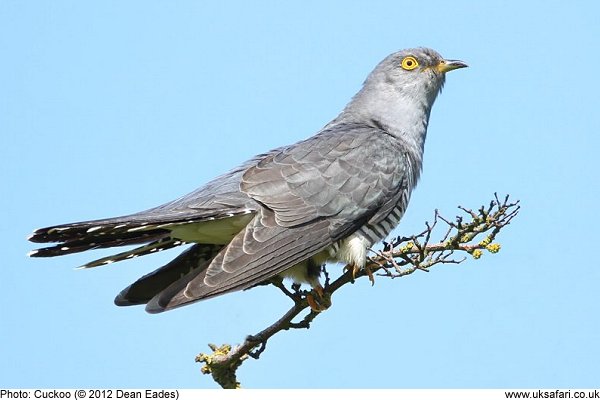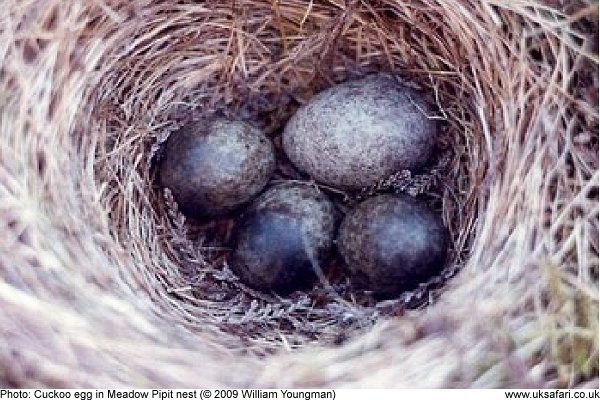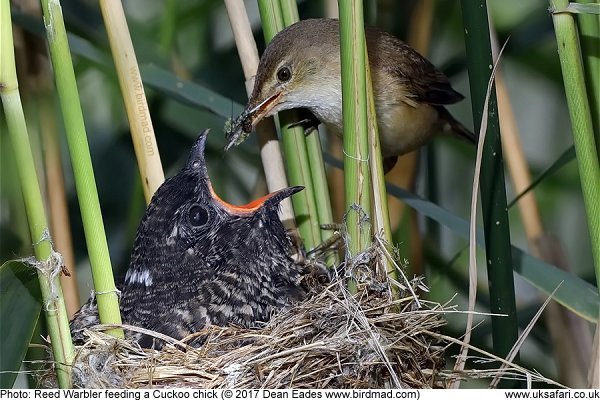 Cuckoos
Cuckoos
News > Cuckoos >

Amongst all the other bird song this month listen out for the springtime call of the cuckoo. It's becoming a less familiar sound in the UK, but April is the time when this bird returns from Africa to start its notorious nesting behavior. Rather than go to all the trouble of building a nest and raising it's own chicks, the cuckoo simply places its eggs in another bird's nest.
Cuckoos are very good bird watchers. They have to be in order to know which species of bird are capable of raising their young, and which species of bird will feed their chicks suitable food. They also watch other birds in order to know exactly when to place their eggs in another birds nest. If it's put in a nest where the other eggs will hatch first, the cuckoo's egg might be damaged by the movements of the other chicks. Ideally the foster mother will have just started laying her own eggs when the cuckoo drops her egg in the nest. The cuckoo will only lay one egg in each nest. Two or more cuckoo eggs would be more noticeable. Where this occurs it is usually the work of more than one cuckoo. For the poor foster parent this must be like lightning striking in the same place twice.

For their size, the cuckoo's eggs are very heavy, and the inside must be like Dr. Who's tardis, because it seems incredible that such a large chick could emerge from such a small container. Each chick must be very well packed inside the shell or just instinctively good at Yoga.
The cuckoos egg will usually hatch out one or two days before the rest of the eggs. Within twenty four hours it is growing with astonishing speed, and soon starts to realise that there will be no room for others in the nest. The foster parents will have a tough job satisfying its appetite, so almost instinctively it begins to eject the other chicks and eggs.

Within three weeks the young bird will be fully feathered and about ready for its first flight. Since it will now be much larger than the parent it will have already left the nest... if the nest hasn't already been crushed under its weight.
More info at: UK Safari Cuckoo Fact File

 Popular Pages
Popular Pages
Amphibians, Bats, Badgers, Beetles, Birds, Birds of Prey, Bumble Bees, Butterflies, Caterpillars, Creepy-Crawlies, Deadly Spiders, Dolphins, Dragonflies, E-Postcards, False Widow Spiders, Free Newsletter, Frogs, Fungi, Garden Spiders, Glow-Worms, Grey Squirrels, Hedgehogs, House Spiders, Ladybirds, Mammals, Marine Mammals, Moths, Owls, Reptiles, Spiders, Toads, Trees, Wildlife Hospitals
Copyright © 2020 G. Bradley UK Safari. All rights reserved | About Us | Links | Contributors



 Related Pages
Related Pages
